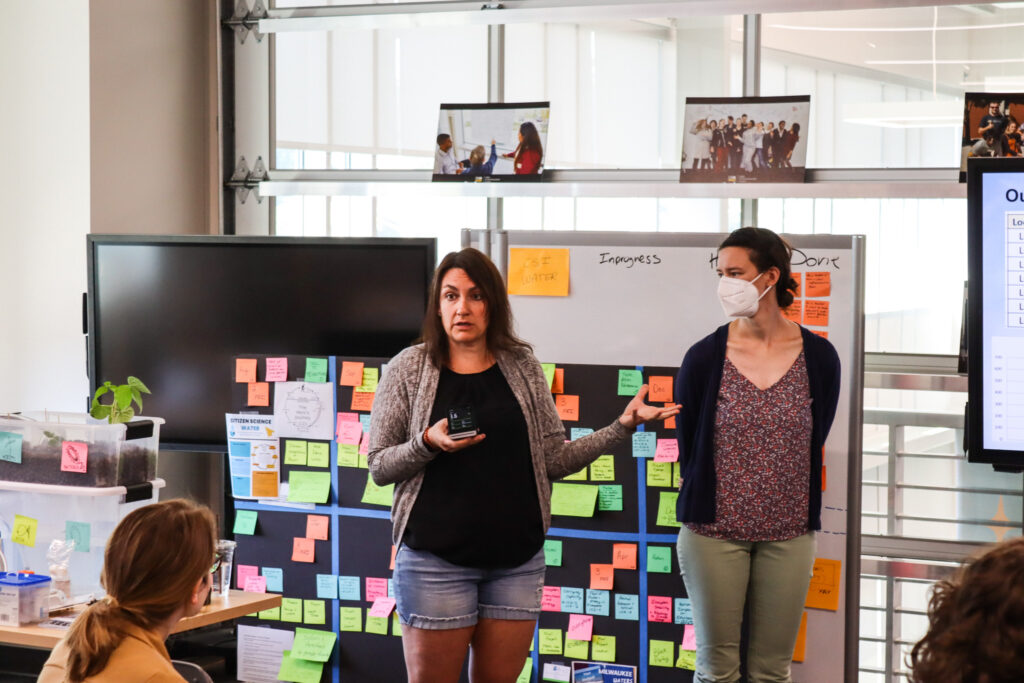
The Lubar Entrepreneurship Center hosts many programs, the most recent of which being the National Science Foundation’s Research Experiences for Teachers (RET). RET is a year-long program broken up into three segments focused on improving lesson plans and helping teachers to think more innovatively about education. This session, however, had an additional facet: citizen science experiments, wherein non-scientific members of the community, including precollege students, could act as researchers and contribute to existing research.
Eight teachers recently participated in this experimental RET program from a variety of different schools. The teachers self-selected their groups and research topics, and ended up with three teams: Indoor Air Quality, Water Quality, and Aquaponics (self-sustaining hydroponics with fish). The first section of the program was held at the LEC over six weeks in which the teachers engaged in partner and research collaboration.
The teams were as follows:
Indoor Air Quality: Joan Masek, Hamilton High School; Katie Schober, St. Joseph Academy; Cori Moran, South Milwaukee High School
Water Quality: Kalyn Gackowski, Bay View High School; Nola Thompson, Rufus King International High School
Aquaponics: Sara Ernster, Reagan High School; Krista Russel, Marshall High School; Ashley Van Galen, Pilgrim Park Middle School
A wide variety of principles were used to supplement creativity and collaboration. The first of these principles was using space as a tool. Previous years had the teams working in individual groups that were physically separated, but this cohort had a single “war room” where groups could share ideas, ask questions, and help each other. Another core ideology was that of celebrating works in progress. All of the teams’ unfinished work was displayed around their workspace, prototypes were tested often, and a design process was implemented to embrace the process of development.
After researching their topics, meeting with experts, and running tests, each of the groups gave a presentation on their research, what they learned, and the experiment they plan to run over the course of the next year. The next step is the second part of RET, where the groups will finalize their lesson plans before the final step: the implementation of the curriculum. The lesson plans will be deployed at the teachers’ schools with a $10,000 fellowship grant for resources. The teachers, their students, and other members of the community will act as scientists testing out their hypotheses before a final report on all the information they gathered.
The RET program helps teachers to educate more effectively, and citizen science complements this with engaging and informative action. The LEC wishes these educators the best of luck with their curriculum over the next year. If you are interested in other National Science Foundation programs, future newsletters will contain information on the recent Innovation Corps cohort that was held at the LEC.
To apply for future RET programs or to learn more, please contact Dr. Ilya Avdeev, Dr. Craig Berg, or visit the UWM RET website.